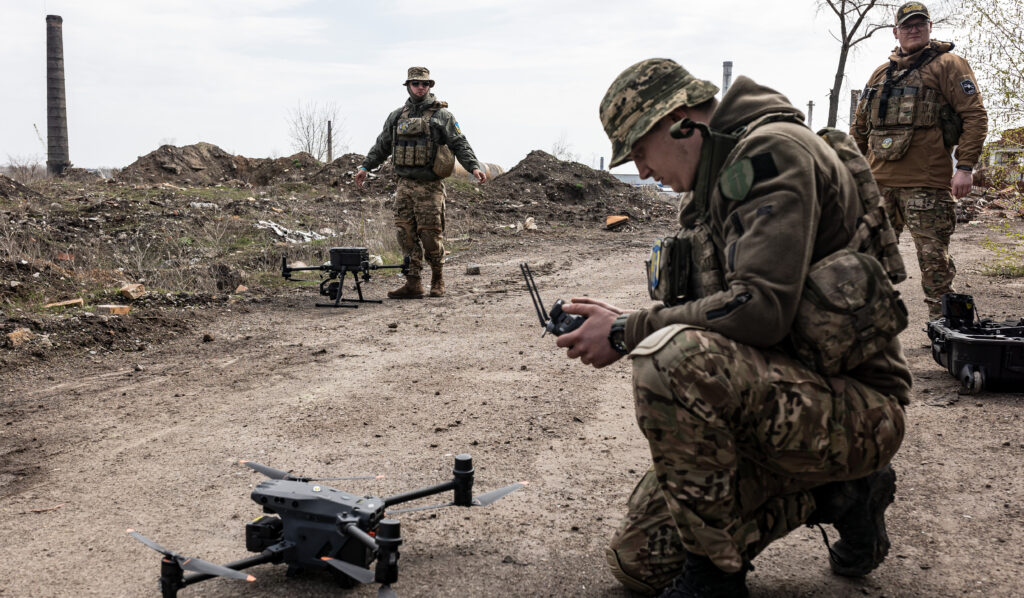Paul Dean, Principal Deputy Assistant Secretary in the Bureau of Arms Control, Deterrence, and Stability at the U.S. State Department, held discussions with journalists in West Africa, shedding light on the groundbreaking initiative titled the “Political Declaration on Responsible Military Use of Artificial Intelligence and Autonomy.”
Mr. Dean emphasized the declaration’s significance, having garnered support from 47 partners, including African nations such as Liberia, Malawi, Morocco, and Libya.
The initiative is designed to provide guidance for the responsible development and utilization of military applications of AI and autonomy.
It comprises ten specific measures aimed at minimizing risks and fostering global stability. Mr. Dean stressed that the declaration is a crucial stride toward establishing an international framework for responsible AI usage, enabling states to leverage AI benefits while managing potential risks.
While in West Africa, Mr. Dean urged more nations to join the initiative, emphasizing practical collaboration and exchanges outlined in the declaration.
These include sharing best practices, engaging in expert-level dialogues, and participating in capacity-building activities. The declaration serves as a foundation for tangible cooperation among states, especially those exploring the integration of AI and autonomy into their military strategies.
Highlighting the broader effort to deter conflict and enhance strategic stability, Mr. Dean reaffirmed the U.S. State Department’s commitment to engaging partners in various forums, including the UN First Committee, the Conference on Disarmament (CD), and the Non-Proliferation Treaty (NPT).
In the nuclear sphere, the U.S. recently sponsored a resolution prohibiting the use of radiological weapons, which received overwhelming support at the UN General Assembly First Committee.
Mr. Dean expressed enthusiasm for ongoing collaboration on nuclear issues and the groundbreaking initiative for responsible military AI and autonomy. He clarified that the declaration marks the beginning of a broader effort rather than an endpoint.
During the interactive session, journalists posed questions covering various aspects of the declaration and the U.S. State Department’s efforts in advocating responsible AI use on a global scale.
In addressing concerns about the limited endorsement from African nations, Mr. Dean emphasized the initiative’s appeal in fostering collaboration, capacity-building, and risk awareness. He encouraged more African countries to join, asserting that their participation would contribute to the leadership in responsible AI use.
Responding to inquiries, Mr. Dean clarified that the initiative’s objective is not to sell military equipment but to establish a framework for responsible AI use, promoting efficiency, fact-based decision-making, and adherence to international humanitarian law.
Regarding enforcement and potential violations of the principles, Mr. Dean expressed optimism about the positive spirit and commitment demonstrated by endorsing partners. He emphasized the collective security interest in adhering to shared norms and rules of responsibility.
The discussion delved into recent drone attacks in Nigeria, where Mr. Dean conveyed condolences for the tragedy. He reiterated the imperative to manage risks associated with AI applications and ensure the presence of policies, training, and technical capabilities for understanding and auditing AI recommendations.
In conclusion, Mr. Dean reiterated the excitement about the opportunity for the international community to showcase shared leadership and commitment to responsible AI use in the military. He encouraged more states to endorse the declaration and collaborate on building mutual capacity for its implementation, marking a significant step in addressing 21st-century military challenges cooperatively and responsibly.



